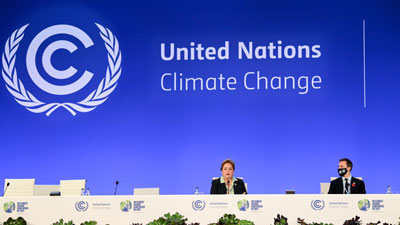
In a recent development at the 28th UN Climate Change Conference (COP28), India has chosen not to sign the COP28 Declaration on Climate and Health, citing concerns over the practicality of reducing greenhouse gas emissions in the healthcare sector. This decision puts India alongside the US as notable absentees from the list of 124 countries that have signed the declaration.
The declaration, aimed at addressing the intersection of climate change and global health, emphasises the urgency of substantial reductions in greenhouse gas emissions. However, India expressed reservations about committing to reducing greenhouse gases used for cooling in healthcare infrastructure, stating potential obstacles to meeting the increasing demands for medical services, particularly in remote and underserved areas.
India's emphasis on resilient health in its G20 declaration echoes its concerns about the impact of stringent greenhouse gas reduction measures on healthcare capabilities. India's three health priorities during its G20 presidency were focused on building a resilient healthcare system, improving access to medical countermeasures, and facilitating the sharing of digital goods between countries.

Also Read: Elevate Your Energy with THESE Iron-Packed Foods
The COP28 Declaration highlights the diverse impacts of climate change on health, including mental health considerations, preservation of traditional medicinal knowledge, protection of livelihoods and cultures, and addressing climate-induced displacement and migration. The commitment to combating inequalities within and among countries aligns with the pursuit of Sustainable Development Goals (SDG3) related to good health and well-being.
Recognising the environmental impact of healthcare systems, the declaration promotes initiatives aimed at limiting emissions and minimising waste within the health sector. This involves assessing greenhouse gas emissions, developing action plans, setting nationally determined decarbonization targets, and implementing procurement standards for national health systems, including supply chains. The overarching objective is to promote sustainable practices within the health sector, contributing to broader climate goals.
How we keep this article up to date:
We work with experts and keep a close eye on the latest in health and wellness. Whenever there is a new research or helpful information, we update our articles with accurate and useful advice.
Current Version